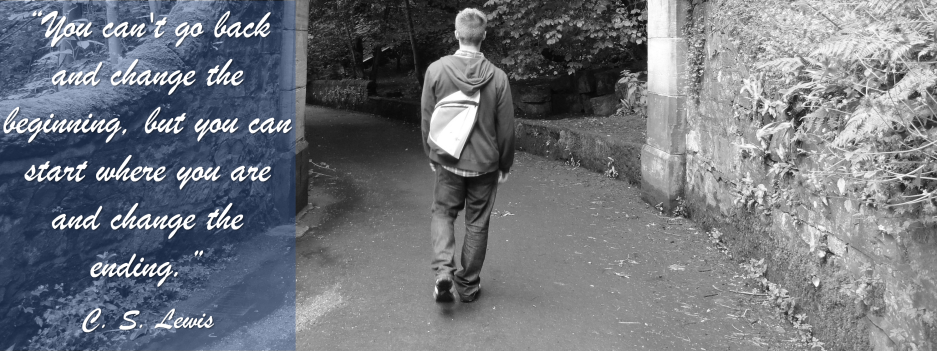Header image credit: me // Featured image credit: me
Following up on my last post’s discussion about happiness and mindfulness, I want to talk a little bit about something that’s similar, yet almost the inverse: flow. The experience of flow is still very much an experience of being in the present, but it involves being so fully absorbed by and engaged with what you’re working on that the associated feeling of well-being derives less from an active practice of mindfulness and almost more from a present mindlessness.
What Is Flow?
Flow is the state that happens when your ability level is ideally matched with the task you’re working on (see the graph below), allowing you to become completely absorbed in the task and in the moment. Mihaly Csikszentmihalyi is the researcher credited with coining the term and beginning the psychological study of the phenomenon, so I’d best leave the description of the phenomenon up to him (as taken from the transcript of this TED talk on the topic). Speaking about a composer’s experience of what it’s like to be in a state of flow—what we might also refer to as “being in the zone” or “being lost in the moment”—while composing, he describes it this way:
“Well, when you are really involved in this completely engaging process of creating something new, as this man is, he doesn’t have enough attention left over to monitor how his body feels, or his problems at home. He can’t feel even that he’s hungry or tired. His body disappears, his identity disappears from his consciousness, because he doesn’t have enough attention, like none of us do, to really do well something that requires a lot of concentration, and at the same time to feel that he exists. So existence is temporarily suspended. And he says that his hand seems to be moving by itself.”
Temporarily suspended existence. It’s almost as though he’s describing an out-of-body experience. As Csikszentmihalyi notes, the ancient Greeks had a word for this experience: ekstasis, which literally translates to “standing out of” what’s normal, and, yes, which gives us our English word ecstasy. Hence the connection between flow and happiness—or, perhaps more accurately, well-being, for it’s not always so much an elated feeling of happiness, but it is a subjectively positive experience nonetheless. As I mentioned in my last post, happiness is hardwired into our brains; based on that, I’d argue that the reason flow is such a positive experience is because, when in flow, we let go of all the other things that hinder our natural happiness from coming out. Thus, whereas mindfulness releases our happiness by emptying the mind of distractions, flow releases our happiness by so filling our minds that there is no more room for the distractions.

Image credit: MI PHAM (freely available via Unsplash)
Choosing Happiness
But those distractions are only one of the things that can stifle our joy. Expectations can be just as brutal, if not more so. In particular, our expectations about how things could be (compared to how they currently are) can profoundly hinder our happiness. We’re also notoriously bad a being aware of this, as Dan Gilbert discusses very entertainingly in this delightful TED talk. As an example, he gives data showing that people predict that a lottery winner will be significantly happier a year after winning than another man will be a year after an accident that made him paraplegic, yet people having experienced those different events are equally happy a year later. A poor prediction on our part. Similarly, people predict that they will be happier in scenarios where they will get something akin to a trial period in order to test a product (or something of that ilk) before making a decision, presumably because they assume they’ll then be able to choose the thing they like better. Yet again, a poor prediction. People are actually less satisfied with their decisions when they have such trial periods.
Why are we so bad at predicting happiness, even our own? It’s because we overvalue what Gilbert refers to as natural happiness, which is the feeling that happens when we get what we want, and we undervalue (if not altogether discount) synthetic happiness, which is the feeling we make when we don’t get what we want. We make such inaccurate predictions in the above scenarios because we only focus on natural happiness: we assume the lottery winner will be naturally happier, given that he now has more money; we assume we’ll be happier when we’ve had time to make a more informed buying decision. These assumptions are, at times, valid. As Gilbert adds, “freedom, the ability to make up your mind and change your mind, is the friend of natural happiness, because it allows you to choose among all those delicious futures and find the one that you would most enjoy.”
However, life happens. We get sick, we lose our jobs, cars break down, pets die, etc., and we have little to no control over a lot of those things. In those moments, when the badness is unavoidable, our synthetic happiness system kicks in and we start to make the best of our circumstances. Mostly unconsciously, mind you. That’s why, as Gilbert says, the same freedom that is the friend to natural happiness is “the enemy of synthetic happiness.” If we think there’s a way out, a means of avoiding the badness, we’ll keep seeing the badness as bad as we continue to look for and hope for an escape, with all the goodness it promises. But when we’re stuck and we have no escape route, we find a way to make our peace with it and, in so doing, we find happiness. We start to see the beauty in the ugliness. We synthesize our happiness.
Here’s the problem: the synthetic happiness system is largely non-conscious; it’s not something we usually actively choose to engage. So how can we hijack this system to be engaged more often? One way, based on Gilbert’s research, is to avoid situations where it will be hard to synthesize happiness. This could be a simple as committing to make your decisions final. By all means, yes, take the time to do your research and make an informed decision; but once the data are in, don’t deliberate on the options; instead, make a decision quickly and stick to it. Deliberation is a happiness killer. Another option is to employ the mindful happiness system. Start making it a point to see the good amidst the bad, to find the silver lining. Not only will it make your circumstances a bit more bearable, but you’ll be making a stronger habit of happiness-finding, meaning you’ll start automatically doing it more often.
Long story short, in order to be happy, choose happiness. Find the good in your every moment and every circumstance. After all, as the Bard once wrote, “there is nothing either good or bad, but thinking makes it so.”
Yours truly,
D. R. Meriwether, Ph.D.
Renaissance Man and Abundant Life Liver


3 thoughts on “Happiness through Mindlessness”